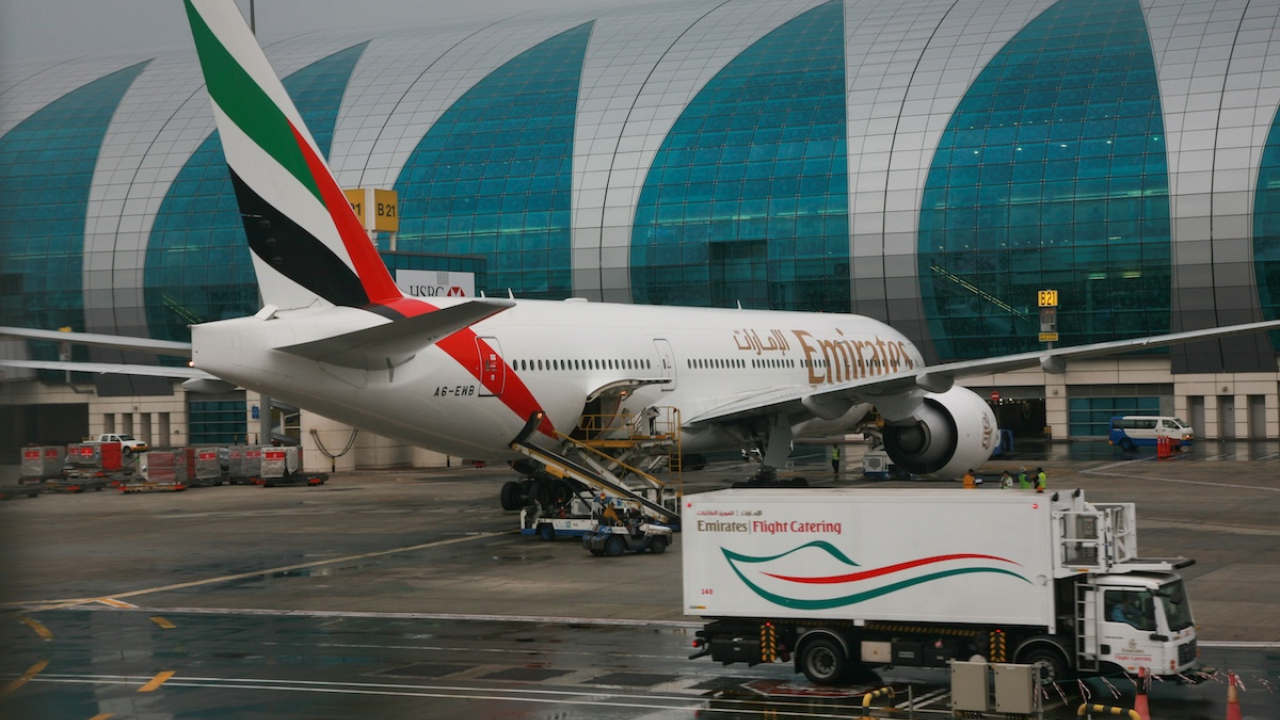Palestinian Airlines in limbo as aircraft put up for sale
Palestinian Airlines faces yet another challenge as the occupied territories’ government puts its aircraft up for sale.

Captain Zeyad Al Bada: “It’s very early to talk about this question [the future of the airline] now.” Picture: BillyPix
For years now, Palestinian Airlines has been a company with no airport to call home, no timetable and no air services flying under its own name. Alan Dron reports.
Now, the chance for Palestinians to see their national airline operating is about to become even more remote, with the news that the carrier’s only two aircraft – a pair of Fokker F50 turboprops more than 30 years old – are being put up for sale by the company’s owner, the Palestinian Authority.
The two aircraft have spent recent years in west Africa, operating on wet leases to Niger Airlines, an activity that brought in valuable revenue. They have been employed in operating a network of domestic services between five cities in the Sahel nation.
However, with the Covid-19 pandemic leading to Niger Airlines suspending operations, the two Fokkers are not currently needed.
Both are currently at Cairo International Airport awaiting their fate, according to Palestinian Airlines’ director-general, Captain Zeyad Al Bada.
Media reports have suggested that, once the Fokkers have been disposed of, the Palestinian Authority will look around for replacement aircraft. The company has, for several years, been hopeful of obtaining a pair of Boeing 737 or Airbus A320-family aircraft, probably with the help of financial assistance from Arab nations, but this plan has so far failed to come to fruition.
Also unclear is when exactly the Palestinian authorities might purchase new aircraft to replace the Fokkers. The current pandemic has seen hundreds of aircraft returned to lessors by airlines and these are now available at rock-bottom lease rates. However, like many governments, the Palestinian Authority currently has little money available, and what it has is being spent on essentials.
However, Al Bada said he was sure that the Palestinian Government continued to support the idea of the territories having their own airline.
The biggest problem, of course, was the continued occupation of Palestinian land by Israel. The airline began life with services from Gaza Airport when that facility opened in 1998 but, just three years later, the airport was bombed by the Israeli Air Force during the Second Intifada. Then, in January 2002, Israeli bulldozers ripped up the airport’s runway and the site has been unusable ever since.
Unable to base itself in its homeland, Palestinian Airlines moved to El Arish Airport in Egypt, some 60km west of the Rafah border crossing between the Gaza Strip and Egypt. Although the airline used the small coastal airport at El Arish for several years after 2012, it was often difficult for passengers to negotiate the border controls between Gaza and Egypt in time to make their flights.
The main destinations served from El Arish were Jeddah and Amman, with Palestinian Airlines’ passengers making onward connections from the Jordanian capital.
However, despite the current lack of services from the Palestinian Territories – or, indeed, anywhere by Palestinian Airlines – staff at the airline will continue to have their salaries paid, said Al Bada. “They are on standby,” said the director-general.
Al Bada, whose earlier career included a lengthy spell as personal pilot to former Palestinian leader, Yasser Arafat, stressed that much was unclear about the future of the airline and its fleet.
“It’s very early to talk about this question now. The [Palestinian] government is changing and everything is changing [with the pandemic].” With the international situation developing so swiftly at present, it was difficult to look two days ahead, never mind two years, he said.
As well as the uncertain path of the pandemic, it is difficult to foresee if the current thawing of relations between Israel and the UAE and Bahrain will spread throughout the Arab world and, if so, what effect this might have on the Palestinian situation.
There is little doubt that Palestinians would use a home-grown airline, seeing in it a small emblem of statehood. But it may be some years yet before new aircraft are available to take to the sky bearing the Palestinian flag.
Stay up to date
Subscribe to the free Times Aerospace newsletter and receive the latest content every week. We'll never share your email address.

